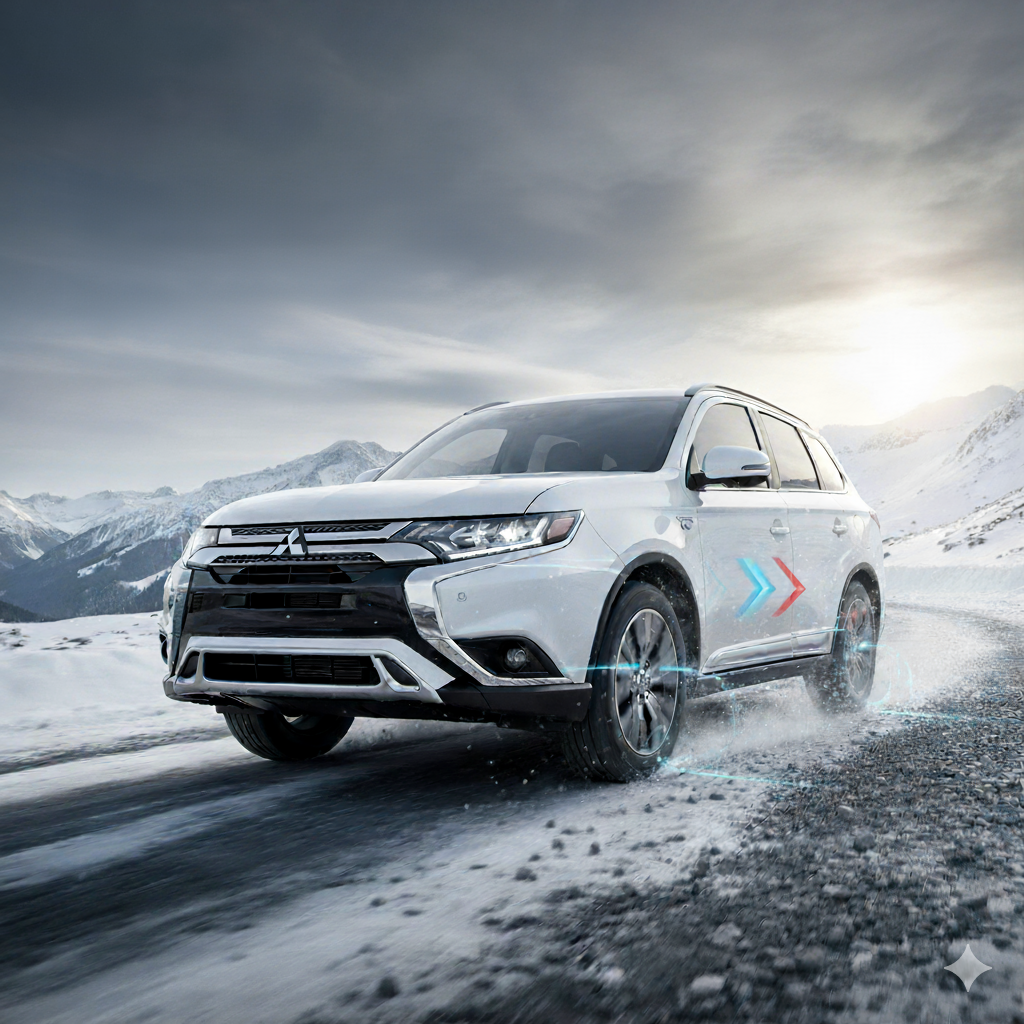Understanding the Mitsubishi S-AWC System: Advanced Control in Every Condition
October 10 2025, 360.Agency

Mitsubishi’s Super All-Wheel Control (S-AWC) system is one of the brand’s most important and distinctive technologies. Built on Mitsubishi’s long-standing expertise in rally racing and all-terrain performance, S-AWC is more than just an all-wheel drive system—it’s a comprehensive suite of integrated vehicle dynamics controls that work together to optimize traction, stability, and handling in real time.
What is S-AWC?
S-AWC (Super All-Wheel Control) is Mitsubishi’s proprietary all-wheel control system that enhances vehicle stability and agility by coordinating multiple systems—active front differential, rear differential, braking, and torque vectoring—into one integrated package. It first debuted on high-performance vehicles like the Lancer Evolution and has since evolved to enhance the confidence and comfort of everyday driving.
In modern Mitsubishi crossovers like the Outlander and Eclipse Cross, S-AWC automatically adjusts power delivery between the front and rear wheels, and selectively brakes individual wheels, to maintain grip across a wide range of road conditions.
How Does It Work?
At the heart of S-AWC is its ability to detect changes in road surface, steering angle, yaw rate, and wheel speed. It uses this data to actively control:
• Active Yaw Control (AYC): Adjusts torque between the left and right wheels to improve cornering precision and reduce understeer.
• Stability Control Integration: Works with the braking system to apply precise brake force where needed, stabilizing the vehicle during sharp manoeuvres or slippery conditions.
• Drive Mode Selection: Drivers can choose between multiple drive modes—Normal, Snow, Gravel, and sometimes Tarmac—allowing the system to tailor its operation to specific driving environments.
Why It Matters
S-AWC gives Mitsubishi vehicles a level of sure-footedness rarely found in compact crossovers. It boosts driver confidence in snow, rain, or gravel and improves stability on winding roads. The result is an all-wheel drive experience that feels intuitive, responsive, and incredibly secure—especially when the weather turns unpredictable.


